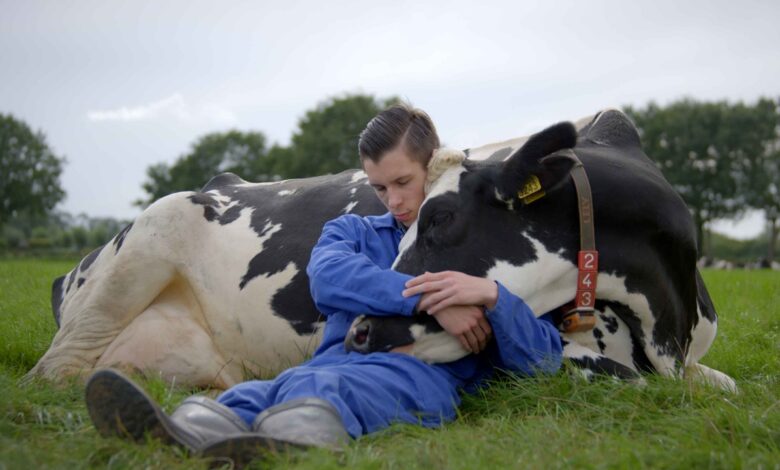Review My Big Brother – Review on FilmTotaal


Director: Mercedes Stalenhoef | Time to play: 107 minutes | Year: 2023
More than three years ago, nineteen-year-old Gijs’s existence was upended by the unexpected suicide of his family and soul mate Arie. My older brother it does not avoid the inevitable question of ‘why’, but above all it depicts the pain and resistance of the people left behind. The result is an intimate, confrontational documentary that also contains an unexpected dose of lightness due to the characteristic humor of honest Gijs.
In the period before his death, Arie was often away from home due to his job on a container ship. However, her relatives found her body on the fateful day in the place where she (supposedly) grew up and spent her childhood. It’s hard to imagine how momentous it is when your own home, against your will and thanks, is dominated by tangible grief.
You will understand that moving is not a topic of discussion if you get to know the family members. In part because they didn’t see Aries’s act coming (and therefore couldn’t say goodbye), they seem to feel responsible not only for honoring the memory of his presence, but also for continuing to tie him to home. For example, his bedroom remains intact for a long time and they cancel a planned replacement of a dormer window when the crane is ready. Only around Christmas, with more load since 2019, Gijs and his parents are deliberately looking for a vacation home.
It is striking that documentary filmmaker Mercedes Stalenhoef (Take it) gained access to the experiences and emotions of the bereaved family at a particularly early stage. She feels almost surreal ‘being there’ when the devastation over a missing suicide note after opening Arie’s computer gives way to a different kind of sadness. The fact that you don’t feel like a voyeur while watching perhaps says something about the implicit bond of trust between vulnerable family members and the (relative) stranger behind the camera.
Gijs is the first to realize that the many conversations about Arie are starting to take their toll. “Processing is slower for me,” he confides in Stalenhoef for the first few months. Relationships within the family are loving, but tense: mother and son express their emotions more than once in totally opposite ways, while the father’s position is already more vulnerable due to the limitations and consequences of a spinal cord injury.
When his mother is overly active in her attempts to control and drive the coping process, Gijs regularly responds with characteristic dark humor, which intentionally or not, clarifies the tone of the documentary. The highlight is a visit to a ‘stuffed animal farm’, where Gijs’s mother (and Gijs himself at the end) completely surrenders to the comforting contact with an unsuspecting cow.
The reason for the departure is extremely serious, but due to the touching disgust of the youngest in the family, there may be laughter (not the first time) in a documentary in which you do not immediately expect it. This tragicomic effect does not indicate that Stalenhoef treats his subject “lightly”: it is rather to the credit that Gijs was visibly able to be himself during the production process.
In the end, only one intervention by Stalenhoef’s director feels contrived: the choice to prominently incorporate spooky shots of the Arie’s container ship into the editing. The images appear to be an attempt to make sense and meaning of Arie’s lonely years away from home, including the wandering ghost of the boy. Due to the awkward sound design and lack of people, these scenes are wildly out of place, leaving it unclear if the visuals actually contribute anything to the family’s coping process.
It is touching, moving and even a little exhausting to witness a family mourn for almost two hours. My older brother It’s a tough ride, but the candid confessions from siblings and parents are certainly worth it. The relevance of the topic is also enormous. “Although sometimes I can’t even predict my own thoughts and behavior, the mind of another is even more elusive,” Stalenhoef writes in a statement.
The director does not insist on answering the inevitable “why” question, but implicitly underlines the importance of keeping suicide and thoughts about it away from the taboo. The documentary is not didactic, but therapeutic (for some) perhaps. Towards the end, Gijs is finally able to read Arie’s goodbye letter; somewhere, however subtle, something hopeful has changed in that long mourning.